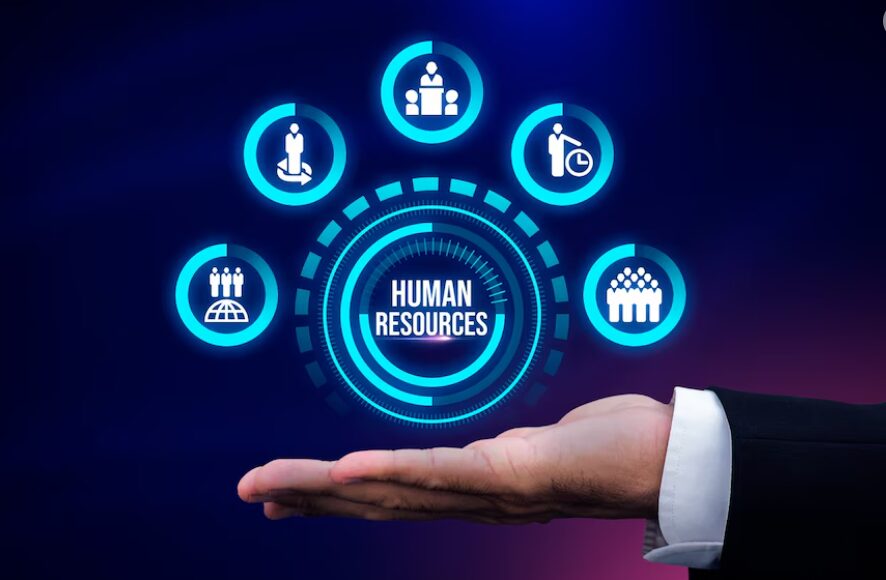How HR Sets Your Business Up For Success
by Arnab Dey Business Development Published on: 13 March 2024 Last Updated on: 28 March 2024

Human Resources departments serve as the backbone of any successful organization.
While traditionally viewed as administrative support, modern HR practices have evolved to become strategic partners in fostering business growth, enhancing employee engagement, and driving long-term success.
A well-functioning HR team – whether they are in-house or outsourced HR – not only ensures legal compliance and administrative efficiency but also plays a pivotal role in shaping company culture, talent acquisition, and employee development.
Here’s how good HR practices set businesses up for success, with a focus on long-term benefits:
Compliance & Risk Management

HR will help you get all your ducks in a row.
Human resources are responsible for ensuring that the business remains compliant with any regulations – set by the state or industry, as well as specific employment law requirements. These change all the time, so you do need someone on hand who has the skill set to manage this.
It’s not just the strictly legal stuff that HR works on. They also write the policies and procedures for the business – everything from work-from-home and behavioral expectations to safety procedures.
These must be in place, updated, and tailored to your specific business. Policies and procedures give everyone a standard to meet as well as boundaries to work within. These documents will also help to protect a business if there is ever a need for a workplace dispute or investigation.
Strategic Workforce Planning
Using all the internal data that are readily available (for free!), the HR manager or consultant can align business goals with current capabilities and talent in-house. Then, they can build a roadmap on how to plug the gaps and identify any costs and needs. This is strategic workforce planning.
Successful strategic workforce planning will make business goals for growth more achievable by making sure the right people are in the right positions, employees have the tools they need, and proactively mapping out recruitment needs to bring in new skills to the business.
When done correctly, workforce planning will also cut costs on recruitment, by supporting retention and upskilling internally. It is also likely to have a big impact on productivity and employee morale, too.
HR Sets Your Business By Building An Inclusive Work Environment
According to a survey conducted by McKinsey, around 39% of the participants decided to refrain from taking up the job. It is because they firmly believe that the organization is not that inclusive. Many people desire to work in a more inclusive environment.
We mean an environment where the coworkers feel welcome. Building such a work environment keeps the employees happy and increases the strong desire to remain competitive. It is a must-have for startups, and this is how HR sets your business.
Employee Value Propositions & Retention

Employee value propositions (EVPs) serve as the cornerstone of an organization’s ability to attract, engage, and retain top talent, ultimately setting the stage for long-term success in recruitment and retention.
An EVP outlines the unique benefits and opportunities that employees can expect in exchange for their contributions to the business. By clearly articulating the value proposition, businesses can differentiate themselves in the competitive talent market, appealing to individuals who align with their culture, mission, and vision.
An EVP not only arrests the attention of high-caliber candidates but also develops a sense of purpose, belonging, and commitment among older employees, driving higher levels of engagement, productivity, and retention.
HR works with individuals and leaders throughout the business to build a successful EPV and retention model. It must always be tailored to the business and what else is on offer in the market.
Naturally, businesses who invest in their EPVs are investing in their future, reinforcing the employer brand, positioning the organization as an employer of choice, and strengthening its reputation within the industry. Moreover, you’re also going to cultivate a motivated and loyal workforce.
Setting Up The Basics Of Employee HR Policies
Another important way through which HR sets your business is by setting up the basics of the HR policies and processes. The foundational policies to setting up an organization are policies.
The HR team, along with the management, owner, and legal team, engage in framing the right policies. Usually, the organizations set up policies like employee behavioral policies, POSH policies, and others to arm the business trust of the employees.
Organize Employee Records
The respective business’s HR departments are responsible for organizing key records and documentation. They include resumes, paperwork, performance evaluations, accidents, sensitive information, etc.
Improve The Employee Wellbeing

The HR department within an organization plays a key role in looking after the benevolence of the employee. They engage with the hierarchy to frame policies on the employee’s well-being. An organization’s physical and financial well-being is one of the utmost requirements that the employees demand from the officer.
The policies ensure that there is equal pay for an equal amount of work done, irrespective of discrimination. These people-based concerns drive the HR department to frame the policies. This is how HR sets your business and takes you to an entirely different level that you always love to aspire to.
Managing Employee Relations
Another responsibility for HR is managing employee relations.
HR is the communication tool between ‘the business’ and the individual. HR managers will be involved in performance management, communicating change or disciplinaries, and cultivating the specific culture in the workplace – every interaction of which will make up how an employee feels about the business they work for.
Do they feel listened to? Do they feel the company is being transparent and providing updates when they can? Are actions for moving up clear? Are standards of work and performance being communicated effectively? What is being done to build relationships between co-workers?
Conclusion
Fostering positive relationships between management and employees, HR creates a supportive work environment where individuals feel valued, respected, and motivated to contribute their best efforts.
The long-term benefits of high performance, high morale, and employee engagement are easy to see and long-lasting: productivity, innovation, money saved by retaining employees, low turnover, low absenteeism, and so much more.
Quality employee relations can make your business more competitive in your market, setting your business up for success, all as a result of the role of HR.
Read Also:







































































































